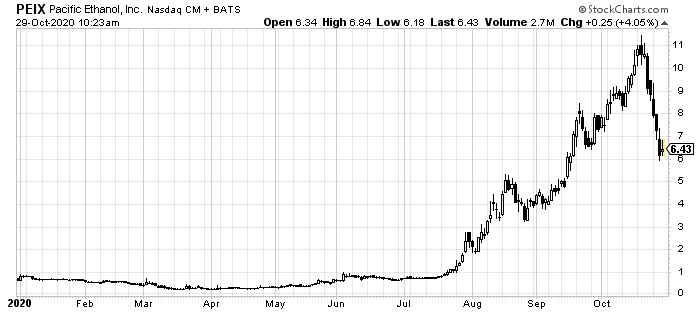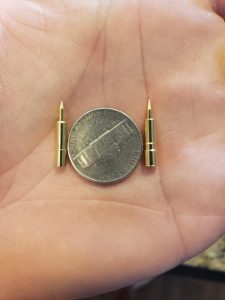More than two decades ago, Jim Collins, author of the brilliant Built to Last and Good to Great books wrote a remarkably succinct summary of one of their core ideas.
For Fortune magazine, Collins wrote:
“…companies like Hewlett-Packard, Disney, and Boeing, which as a group have outpaced the stock market averages some 15-fold since the 1920s—have one thing in common. They have successfully adapted over the decades to a changing world without losing their core values. They have done so by grasping the difference between timeless principles and daily practices.”
We all know that things can’t stay the same forever.
If you sold horse-drawn carriages a century ago, you’d have already been left behind.
Companies like Blockbuster who couldn’t adapt to the streaming age are long dead.
But that’s the key to Collins’ argument. Corporations need to adapt without sacrificing their core values.
This isn’t always a clear idea. In other places, Collins discussed how companies don’t often have principles clearly defined during their founding.
And more often than not, those companies fail.
Whereas even outdated businesses and products that do have core values to fall back on have a better track record.
This whole argument is why a small but exciting California company has me pouring though years of financial statements and earnings calls.
Pacific Ethanol Inc. (NASDAQ: PEIX) started in 2003, with the goal “to supply low carbon renewable fuel for the transportation market.”
If you’ll recall, ethanol producers were a hot commodity two decades ago.
Many states forced gas stations to sell ethanethiol-blended gas. The idea was simple.
The U.S. produces too much corn and not enough oil. Corn, as a crop rather than a natural resource is renewable and cleaner burning.
So, economically, geopolitically and environmentally, the U.S. would go big on ethanol fueling our automobiles.
Still today, ethanol is found in the gas we put into our cars.
But its price tag and therefore profit margin for producers has crashed over the last few years and even decades.
So, earlier this week, Pacific Ethanol decided to “adapt” to the new marketplace, possibly years late… or possibly at just the right time.
On Monday, PEIX announced an official change.
It would 1.) no longer be called Pacific Ethanol, and 2.) no longer be primarily an ethanol company.
This shift has been going on for the past year, however. As revenue fell for its fuel-grade ethanol, Pacific has increased its sales from its specialty alcohol products.
It sells these alcohol products to the consumer staple companies in industries like health, home, and beauty, as well as food and beverage.
These products go into things like cosmetics, pharmaceuticals and hand sanitizers.
That’s right, the company kind of just fell into one of the hottest categories of 2020: sanitizers.
Investors noticed, despite its name:

In 2019, 85% of Pacific’s sales came from its ethanol fuel.

Grab a piece of paper and pen to write this down…
Because you’re about to see the name and ticker symbol of the ONLY 5G STOCK every investor should own.
You can get the name and ticker of this company right here, no strings attached. But you better act fast…
Because the Federal Communications Commission, the government agency in charge of 5G, just scheduled a major announcement that would send shares soaring once announced.
Don't miss out. Click Here to Get #1 5G play for 2020 before the next market close.
Through nine months of 2020, its sales are split evenly between ethanol and its specialty alcohol business.
With the boom in sanitizer sales this year, that’s not too surprising.
However, back to Collins’ point, is this the company adapting to the times or changing its core values?
As you can see in the enormous pullback now in motion, investors seem to be siding with the latter.
Along with completely shifting its entire business model, it has also been trying to lift itself out of a deep debt hole after years of weak ethanol margins.
It has more than $200 million in debt, less than $40 million in cash, and prior to its most recent quarter, no net income.
So, during this whole transition, the company also announced and has now priced $75 million worth of dilutive new shares.
In many ways, with its recent spike in share price, that was the exact right move.
But since it has done so at the same time it’s basically told shareholders that they now own a completely different company, you can see why they would decide to exit their positions.
I don’t think this is over yet. As Collins wrote, there’s a difference between “timeless principles” and “daily practices.”
That’s not to say Collins’ philosophy holds true for every historical case.
After the ongoing plunge in share price and refocus and renaming efforts, there might be something there.
With coronavirus clearly uncontained once again, the demand for sanitizers isn’t likely to fall.
Specialty alcohol is a far higher margin product than ethanol. And the company did just post its first quarterly profit in recent memory.
I’m going to watch this one continue to fall.
In a few months, I can look at how this share offering actually impacts Pacific Ethanol’s (or whatever its name will be by then) balance sheet.
I suspect that Collins is right that this is a fundamental shift that hurts the company tremendously.
But that doesn’t mean there can’t be an eventual rebound from it as well.
As shares fall back into their former microcap levels, it could be an amazing emerging profit story once again.
To your prosperity and health,
Joshua M. Belanger
Executive Publisher & Founder